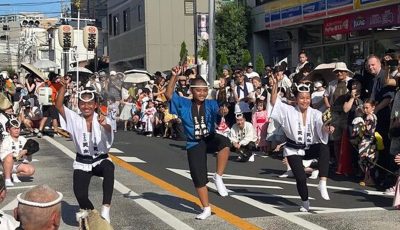VOICES: Mami Ikeda

Mami Ikeda, 49, will have to leave the CNMI in September due to the contract workers cap. Her family has lived in the islands for nearly 40 years. (Thomas Manglona II)
Editor’s note: In Saipan Tribune’s latest weekly series, “Voices” shares the stories of those in the CW community and sheds light on those directly affected by the humanitarian crisis in the CNMI.
Mami Ikeda’s family has lived here for nearly 40 years. She and her mother, father, and brother made Saipan their home in the 1970s. Although Ikeda moved back to Japan after her mother fell ill, her brother, Kazunori, and father stayed to live and work in the islands. They were laid to rest at the Tanapag Cemetery.
Ikea, 49, is the only one in her family left on Saipan. She spends her days processing documents for individuals and corporations—a job she’s had for nine years since returning to the island. She told Saipan Tribune that she even processes papers for contract workers whose papers were renewed.
The past few weeks have been hard on her job. While she passes along other people’s documents for renewal, Ikeda will have to leave in September. Like many others who did not reach the threshold to continue working in the CNMI, she says she will have to leave everything she has behind.
“This is where I grew up,” she said. “Nobody is going to look after my bother and father’s grave. I really don’t want to leave them.”
Ikeda sympathized with families in similar or even worse situations. “Too many families are being separated because they have children who were born here. This is their kids’ only home.” She added, “It’s so hard for them to bring them over if they are affected and need to leave because it costs so much. The majority of people who are affected happens to be those who have been here for 10, 20, or 30 years.”
When they reach their date of expiration, contract workers must leave within 10 days.
“What can you do in 10 days after living here for decades?” she asked. “People are devastated.”
Ikeda joins the wide call for improved status for those who have lived in the islands for many years. She said that is would give a number of people “peace of mind” because they have family here, who call Saipan their home too.
While Ikeda dreadfully waits for September to come, she expressed hope for an immediate solution.
“As you know, businesses are being affected by that and they are closing already. This is not just a contract worker problem, it’s the whole CNMI the whole business industry,” she explained. “I would like the federal officials to hopefully understand the situation when they came over for the meeting. I am hoping they do something about it.”
Ikeda was able to share her story and concerns in a recent meeting with local officials and representative from the U.S. Citizenship and Immigration Services. During her address, she noted that when people, such as contract workers, are so essential to the community and its development “then officials should consider that they need to stay.”
If there’s no meaningful action taken, Ikeda will have to leave, following in the path of countless other workers who have already departed the island.
“I don’t have funds to go home. When I came back in 2009, I left Japan for good. I did not leave anything there,” she said. “I did not leave a thing there…If I had to leave I would have no place to go back to in Japan. It is going to cost me a lot. I could maybe come back as a new hire, but I don’t know how long that is going to take.”
If that day comes, Ikeda said that she knows so many people support her and others.
“I’ve made so much friends since 2009 than I did in Japan. People here are already my family. I am blessed with so many people.”
Ikeda has maintained an active voice in the developing situation. She started a Facebook page and website called “Faces of CWs” to connect workers and express the concerns of those affected. Visit www.facesofcws.com to view the group’s activities.



























